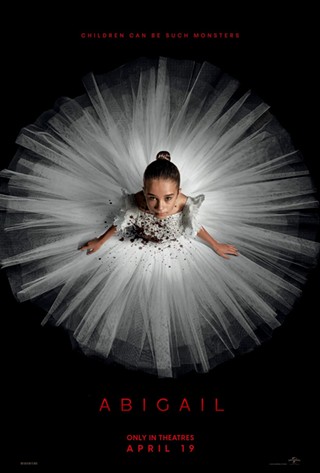And thus it was, with a great and zestful relish, that I betook myself to the cinema to see a moving-type picture account of the great heroes of that bygone age. While some of my favorites, including The Pulverizing Proletariat, Bwana Man and King Leopold were absent from this outing, it did manage to gather together many of the most important do-gooders of the age into a single league for the purpose of defeating evil in its many guises. Amongst those assembled were the African adventurer Allan Quartermain, the vampiric Mina Harker, the dashingly handsome Dorian Gray and the charmingly naïve fence-painter Tom Sawyer.
Assembled they were by Her Majesty's Government to give stop to a dastardly plan to engage the world itself in a war, a "world war," if you will. Behind this plan: a phantom whose face had been destroyed as though in some operatic moment. The Phantom's plan: to gain access to the greatest minds of the age in order to produce weapons, not only of destruction, but of destruction on a mass scale: weapons of mass destruction, if you will.
Thus, our league must hunt this scoundrel through the great capitals of the West and the gloomy arctic wastes of the lands of the heathen Mongols lest the horrors of war be unleashed upon the innocent caretakers of the Earth, the great European peoples. Dashing about the very globe in the sub-underwater vehicular transport of one mysterious Captain Nemo, the crusaders against evil are led to uncover a plot so diabolical that it has swept up even several of the presumably incorruptible English in its malevolent wake.
Truly, this is the stuff of fine filmmaking and artistry, yes? And, indeed, judged solely on its visual panache and photographic excellence, The League of Extraordinary Gentleman could be termed an enchantment, well embodying the look and style of an age that invented paisley and Communism. The story, too, proceeds at a rousing pace throughout its early stages, well establishing the threat, and, in the process, presenting several scenes of well-orchestrated violence such as gentlemen are wont to enjoy, at least whilst in their teenaged years, when such violence stands in for their inability to achieve sexual congress with their desired objets d'amour.
For those of more advanced years, the film offers a wide range of references to the literature and popular fiction of the age, and also a cutting remark about the Belgians, who nobly bear the burden of being the butt of many a humorous comment by those on the continent.
Still, all is not well in The League of Extraordinary Gentlemen. If one had never seen a film of action before, this one would seem most fresh and enticing. Sadly, in our modern age, such films come at a pace more rapid than that of Phileas Fogg. Thus, there is little novelty in this presentation. Further, it partakes of many of the tired tropes and hackneyed modes of such films, including the scene wherein the villain explains in great detail his plan. Such an expository sequence, long a cherished element of the films featuring Mr. James Bond, now seems, at best, tired, and, at worst, a lazy ploy on the part of the authors of the film who couldn't be bothered to reveal this information in a more narrative format.
Alas, the greatest failing of The League of Extraordinary Gentlemen comes in its final sequence, a long and explosive series of encounters in a malign fortress where the scoundrels make their final stand. Such finales, well a part of our cinematic heritage, are now encumbered by their own history. Knowing as we do that goodness always prevails in films such as these, it is difficult to maintain interest and excitement throughout such a lengthy melee. Yawning thus proceeded in the midst of this ending, a sad comment on its lack of success.
Still, the thespians who play the roles in this film add a brightness to it. Sir Sean Connery is at his best here, somehow avoiding the stereotypical portrayal of his earlier roles in this most stereotypical of films. Messers Stuart Townsend and Rodney Skinner, portraying Dorian Gray and The Invisible Man, respectively, turn in performances imbued with an amusing bombast that does much to leaven the film. The young Shane West gives Tom Sawyer a callow and yet lovable insouciance, and Peta Wilson, as Mina Harker, has a vivacity and prurient appeal in spite of her English reserve and modest dress.
Thus, the film is not a complete loss, and fun is had, but a measured fun, mediated as it were by the over-reliance on the narrative ideas first presented in earlier works in this same genre. Would that the excitement had lasted until the film's end, and would that the story had more carefully been measured to pace out its pleasures, but one can only ask so much of our hard-working cineastes. Perhaps in its next outing, The League will rise above the standards for this sort of material and bring us the joys we haven't felt since the glorious British Empire ceded its rightful stewardship of the world to the unwashed and ill-mannered former colony of the Americans. Till such time, we await.










